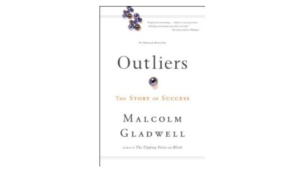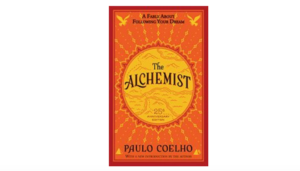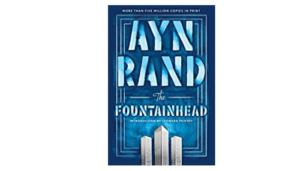In this book summary of Napoleon by Vincent Cronin, you’ll find my notes, valuable lessons, and important action steps.
Napoleon Summary
Napoleon felt strongly in favor of the oppressed and against any form of tyranny. Napoleon Bonaparte believed personal happiness came from acting on behalf of your community to better their lives.
After losing his first siege, Napoleon learned the power of quick decision making, seizing the moment, and striking when there’s a favorable advantage.
Napoleon aimed to be a true man of the people by not declaring his personal religion on them, but instead he gained insight to understand the majority desires of the French people—Catholicism—and then made that the decree.
While most generals would send a part of their army one by one in war, Napoleon outsmarted them by sending his footmen, cavalry, and guns all at one faction and destroying it, then moving onto another faction. Opposing generals didn’t know what hit them until they lost the battle.
If you’re outnumbered, you need to win based on strategy and skill because you won’t win in a normal attack. Napoleon thrived at winning when undermanned.
Deciding it best for France, Napoleon crowned himself Emperor and it worked because he had the support of the entire French army.
Using friends of all classes and nobility, France ruled the French Empire significantly well given its large responsibility. He improved French streets, architecture, finances, and the pride of the people.
Napoleon’s impatience in his 1812 invasion of Russia cost his army big. If he waited until after the nasty winter, he would have most likely destroyed Russia and agreed to a favorable peace treaty with them.
Napoleon’s philosophy is if you risk nothing, you win nothing. (I love this!)
Presenting yourself with confidence inspires confidence in your organization and others. It’s a powerful skill to master. Napoleon used this after his Russian defeat to stay in control of the government.
“Napoleon’s inflexibility could have never stemmed from so feeble a thing as personal ambition; it was rooted in the principles of the Revolution. The conclusion is that Napoleon not, more than most men, ambitious for himself; but he was very ambitious for France an he embodied the ambitions of thirty million Frenchmen.”
Napoleon put France’s honor above France’s interests and went to war against the continental powers of Russia, Prussia, and Austria. This united opponent caused his military downfall.
One of Napoleon’s fatal flaws was that he didn’t understand human nature. It’s this reason his sister lands defected to his enemy, the Parisians when it came time to defend Paris, and his most important general during treaty talks.
There’s often a favorable moment in war where the fate of each side can be determined. Act decisively and win it, or wait too long that the battle becomes a tie or loss.
You can’t win forever and all good things come to an end. After two captures, Napoleon finally dies as a prisoner in the English territory of St. Helena at 51 years old.
Mini Summary
Napoleon sought power not for his personal ambition, but to protect France’s republic and right to liberty, equality, and fraternity. Those were the motivations for his foreign and domestic decisions. And this truth led him to unmatched bravery and iron willpower as he ruled the battlefield and government.
Napoleon goes down in history as one of the best military generals ever based on his operational army formations, quick decision-making, using strengths against opposing army weaknesses, and having individual factions of his army work together in unison. He used his innovative military strategy to expand France into one of the greatest empires Europe had seen in that time and a beautiful country.
Napoleon changed the landscape of Europe forever based on his accomplishments, wars with nearly every European country, military style, and his improvements to cities. After coming from a middle class family, he made the most of his life and his legacy lives on to prove it.
Three Favorite Quotes
“The Maddalena affair left a lasting impression on Napoleon. It taught him, as only failure could, the difficulty of combined operations. It taught him the importance of speed, of the ‘favorable moment’ when men are tensed for action, and the enemy surprised. It taught him the vital importance of firmness in a commander, and of discipline in the ranks.”
“At dinner Napoleon talked of his campaigns, and confided the secret of success: ‘the essential thing is to be afraid last’.”
“I have a good job, ruling the Empire. I could be in Paris, enjoying myself, lazing about… Instead, here I am with you, camping out; and in action like anyone else I can be hit by a bullet… I’m trying to rise above myself. Everyone in his own station must do the same. That’s what greatness means.”
Action Steps For You
Napoleon was a man of strong-willed convictions. He genuinely would die for France, his honor, and his family. That’s what drove his career choice and eventual success.
What irrefutable truth do you hold? What’s your why? What’s your northern star that will propel you forward during the victories and also trials?
Knowing who you are and your central truth is going to help you reverse engineer what it is you want out of life. By discovering your mission, you’ll have a strong foundation to rest on instead of weak desires.
And secondly, how can you use that to build yourself an accomplished career that you’re forever proud of? If it’s not clear, this route is the opposite of taking a soul-sucking-job solely for the money.
It’s aligning your passion to become the best version of yourself. It’s denying yourself in the short-term to build yourself a happy future. It’s looking back on your life with proud honor, not poor man’s disgrace.
Napoleon did it. I’m working towards. Why don’t you start today?
P.S. It wouldn’t hurt to read this book to get a clearer idea of his personal convictions and how they empowered him to be France’s all-time greatest leader.
Order Napoleon
Or check out other book recommendations to become more successful.



